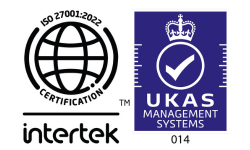Due Diligence in Payroll Software: What is it and How to Look for it

When choosing a payroll software provider for your business, conducting due diligence is a critical step. Due diligence ensures the software meets legal requirements, supports business needs, and avoids costly risks. As one of the leading Payroll providers in the UK, we have put together a guide covering what due diligence means with the new financial year around the corner. We know the anxiety businesses may feel when switching providers. Find out more below on how to evaluate payroll software effectively.
What is Due Diligence in Payroll Software?
Due diligence is the process of thoroughly researching and assessing payroll software before committing to a solution. This involves evaluating its compliance with legal standards, data security protocols, scalability, usability, and integration capabilities.
For payroll software, due diligence means verifying that the tool:
- Meets compliance standards such as GDPR and HMRC reporting requirements in the UK.
- Ensures data security to protect sensitive employee information.
- Aligns with business requirements including growth needs and industry-specific features.
Why is Due Diligence Important?
Failing to conduct proper due diligence can lead to significant financial and operational risks. In the UK, businesses that violate GDPR regulations can face fines of up to £17.5 million or 4% of their global annual turnover.
Even minor violations, such as poor data protection, can result in penalties of up to £10 million or 2% of turnover. Additionally, payroll errors can harm employee trust and lead to penalties for non-compliance with HMRC requirements. Choosing the right software ensures accuracy, saves time, and enhances employee satisfaction.
Key Factors to Consider During Due Diligence
Compliance with Legal Standards
Verify that the software complies with UK payroll and GDPR regulations. This includes proper handling of data breaches and encryption of employee records. Under GDPR, businesses must report data breaches within 72 hours to avoid penalties Find out more on the Data Protection Law Hub.
Businesses must also be mindful that the software meets HMRC’s Real Time Information (RTI) reporting standards. Failing to file accurate submissions can result in fines ranging from £100 to £400 per missed deadline, depending on company size.
Data Security and Privacy
Given the sensitive nature of payroll data, robust security features are essential. Look for software with:
- Data encryption to safeguard information during transmission.
- Role-based access controls to limit who can view or edit payroll records.
- Audit trails to monitor changes in data for transparency.
Scalability
Choose software that can grow with your business. For example, if you plan to expand internationally, ensure the software supports multi-currency and multi-country payroll. At PayEscape we work with businesses of all sizes from small 1 to 50 employees up to large scale from 1,000 to 10,000 plus, scalability with a business means growth is a huge importance for business development.
User Experience
An intuitive interface reduces the learning curve for HR and payroll staff, improving efficiency. Look for tools with:
- Customisable dashboards for quick access to key metrics.
- Easy integration with existing systems, such as HR and accounting platforms.
Steps to Conduct Due Diligence
Identify Your Needs
Outline your payroll requirements, such as:
- Employee size and payroll frequency.
- Compliance with specific industry regulations (e.g., pensions for the auto-enrolment sector).
Research Providers
Investigate potential vendors’ reputation, reviews, and client testimonials. Request demos to understand how the software works in real-world scenarios.
Verify Certification
Ensure the software is certified for HMRC compliance. Certified providers are less likely to encounter errors in submissions, saving your business time and penalties.
Check Data Privacy Policies
Ask vendors how they handle data breaches and whether they comply with GDPR reporting timelines. For example, businesses using GDPR-compliant payroll software have a lower risk of fines related to data misuse.
Evaluate Customer Support
Reliable customer support is critical during payroll transitions or troubleshooting. Check if vendors offer 24/7 support, training, and resources.
Red Flags to Watch Out For
- Lack of Transparency: Vendors who hesitate to provide clear answers on compliance or security protocols.
- Hidden Costs: Ensure all pricing details, including implementation fees, are disclosed upfront.
- Inadequate Support: Delayed responses or lack of support can disrupt payroll operations.
Real-Life Consequences of Poor Due Diligence
Numerous companies have faced fines due to non-compliance or inadequate payroll processes. H&M was fined €35 million in Germany for unlawfully storing employee data, highlighting the importance of robust data security. Businesses in the UK risk significant penalties for failing to comply with GDPR, underscoring the need for payroll solutions that prioritise privacy
Protect your business with the right payroll provider
Due diligence in payroll software selection protects your business from legal, financial, and operational risks. By focusing on compliance, security, scalability, and support, you ensure your chosen solution aligns with business goals and legal standards.
Taking these steps not only safeguards sensitive data but also improves operational efficiency and employee trust. See how PayEscape’s payroll solutions can help your business today. For further information on GDPR and compliance, you can explore GDPR Advisor and Data Protection Law Hub.
















